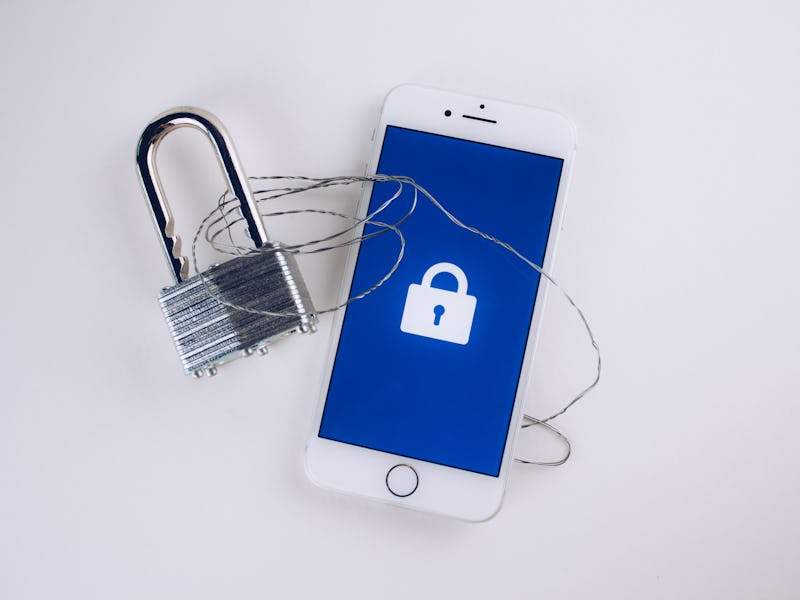How the Supreme Court's Ruling on Cell Phone Metadata Changes Privacy Rights
Police must obtain a warrant to access cell phone location data.

Cell phone companies know where you are at almost all times of the day, and now, thankfully, police need a warrant to access that data.
In a 5-4 decision, the Supreme Court ruled Friday in Carpenter v. United States that police need judicial approval to obtain cell phone location records. The decision adds a new layer of protection for your metadata, and bodes well for future policy and Court decisions, at least as far as privacy is concerned.
The Data
Cell phone companies can identify your location without GPS or an internet connection. The data produced in Carpenter is called cell-site location information (CSLI). It’s generated at the beginning and end of every cell phone call by triangulating your cell phone’s location in relationship to three cell phone towers.
The Fourth Amendment
Before Friday’s ruling, law enforcement could request CSLI records in an almost unlimited scope, with a very low standard of evidence despite the fact that the Fourth Amendment guarantees protection from “unreasonable searches and seizures” by the government.
Thanks to the Fourth Amendment, access to things like homes and cars requires having a warrant supported by probable cause, evidence to support a belief that a crime has been committed. But for CSLI, law enforcement only needed to meet the lower “reasonable suspicion” standard of evidence, which just necessitates “specific reasonable inferences” pointing to danger or a crime.
The Case
The lower standard of evidence required to obtain CSLI has meant that before now, law enforcement has frequently and successfully accessed users’ location data. According to the Center for Democracy and Technology, Verizon alone received 20,422 requests for CSLI in the first half of 2017. Only a quarter of those came from warrants. In 2016, T-Mobile received 51,557 requests.
In the case ruled on by the court Friday, cell phone location data over a period of three months was used to arrest and convict Timothy Carpenter of Michigan for a series of robberies of Radio Shack and T-Mobile stores. Law enforcement did not get a warrant to obtain the data.
The government has previously argued the phone records such as CSLI don’t require a warrant because of the “third-party doctrine,” which has held that information submitted to a third party doesn’t require a warrant because it was surrendered to another organization.
The Ruling
The majority ruling of the Court, written by Chief Justice John Roberts, held that the third party doctrine does not generally not apply to historical cell phone data: “We decline to grant the state unrestricted access to a wireless carrier’s database of physical location information… No constitutional doctrine should presume that consumers assume the risk of warrantless government surveillance simply by using technologies that are beneficial and increasingly integrated into modern life.”
Privacy and the Future
Lisa Hayes, Vice President and General Counsel for the Center for Democracy and Technology tells Inverse that the ruling is a landslide win for privacy advocates and bodes well for future questions surrounding data privacy. “When the Court talks about a privacy right despite a third party holding, I do think that will expand to things like online apps and other important sensitive information that is stored in today’s age.”
Hayes says that the decision was one of the first times that the Court has expressed an understanding and willingness to grapple with the increasingly messy relationships people have with their phones.
“The Chief Justice used broader sweeping language when discussing how Americans live with their cell phone only an arms length away from them most of the time,” she says. “It expressed the court understanding how we use technology in our daily lives that we haven’t seen in awhile.”
Hayes noted that more cases will need to be decided by the Court to see just how far privacy rights regarding your data extend: “By definition the court declined to get rid of the third party doctrine. We’ll need to have more cases to see how far the court is willing to go to protect other types of data we share with third parties.”
In the immediate future, Hayes says to watch increasing efforts by states to protect privacy and internet rights.
“This has been a big year for privacy and privacy awareness,” Hayes notes. “There’s a growing pressure on legislatures to protect privacy rights and I think some of the big waves in the short term may be happening in the states in their efforts to protect residents privacy.”